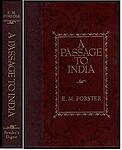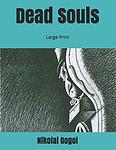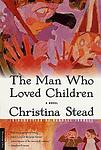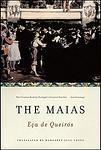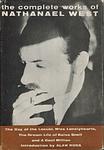Finest Works of Fiction
This is one of the 282 lists we use to generate our main The Greatest Books list.
-
Fairy Tales and Stories by Hans Christian Andersen
This collection of stories offers a mix of enchanting fairy tales and narratives, many of which have become universally recognized classics. The stories range from tales of whimsical creatures and magical realms to poignant narratives that explore themes of love, sacrifice, and the human condition. Some tales are light-hearted and humorous, while others are profound and thought-provoking, demonstrating the breadth and depth of the author's storytelling abilities.
-
Pride and Prejudice by Jane Austen
Set in early 19th-century England, this classic novel revolves around the lives of the Bennet family, particularly the five unmarried daughters. The narrative explores themes of manners, upbringing, morality, education, and marriage within the society of the landed gentry. It follows the romantic entanglements of Elizabeth Bennet, the second eldest daughter, who is intelligent, lively, and quick-witted, and her tumultuous relationship with the proud, wealthy, and seemingly aloof Mr. Darcy. Their story unfolds as they navigate societal expectations, personal misunderstandings, and their own pride and prejudice.
-
Emma by Jane Austen
The novel revolves around Emma, a well-meaning but disaster-prone matchmaker, who ignores her own romantic feelings while setting out to find a suitor for her friend Harriet. Her efforts cause more problems than solutions as she leaves a trail of mishaps behind her. As her plans go awry, Emma realizes that she herself may be the one in love. The book is a classic exploration of social manners, love, and marriage in 19th-century England.
-
Cousin Bette by Honoré de Balzac
"Cousin Bette" is a novel set in mid-19th century Paris, focusing on the lives of the Hulot family and their cousin, Bette, an old maid who harbors a deep resentment towards her relatives due to their wealth and social status. When Bette learns that her cousin's husband is having an affair, she decides to exact revenge by manipulating various characters and situations, leading to the downfall of the Hulot family. The novel explores themes of jealousy, revenge, and the destructive power of repressed feelings.
-
Humboldt's Gift by Saul Bellow
This novel explores the friendship between a successful writer and his mentor, a once-celebrated poet now living in poverty and mental instability. As the protagonist navigates his own existential crisis amidst a life of material success, he reflects on the ideals of his mentor and the nature of art and personal ambition. The narrative grapples with themes of materialism, the purpose of art, and the spiritual emptiness of modern life.
-
Decameron by Giovanni Boccaccio
"Decameron" is a collection of 100 stories told by a group of seven young women and three young men sheltering in a secluded villa just outside Florence to escape the Black Death, which was afflicting the city. The tales, which range from the erotic to the tragic, the hilarious to the instructional, are embedded in a rich framework narrative that provides a detailed portrait of the society of the Italian Renaissance.
-
Wuthering Heights by Emily Brontë
This classic novel is a tale of love, revenge and social class set in the Yorkshire moors. It revolves around the intense, complex relationship between Catherine Earnshaw and Heathcliff, an orphan adopted by Catherine's father. Despite their deep affection for each other, Catherine marries Edgar Linton, a wealthy neighbor, leading Heathcliff to seek revenge on the two families. The story unfolds over two generations, reflecting the consequences of their choices and the destructive power of obsessive love.
-
Don Quixote by Miguel de Cervantes
This classic novel follows the adventures of a man who, driven mad by reading too many chivalric romances, decides to become a knight-errant and roam the world righting wrongs under the name Don Quixote. Accompanied by his loyal squire, Sancho Panza, he battles windmills he believes to be giants and champions the virtuous lady Dulcinea, who is in reality a simple peasant girl. The book is a richly layered critique of the popular literature of Cervantes' time and a profound exploration of reality and illusion, madness and sanity.
-
The Stories of Anton Chekhov by Anton Chekhov
This collection of short stories explores the complexities of human nature and society in 19th-century Russia. Written by a renowned Russian author, the stories range from humorous to tragic, often focusing on the everyday lives and struggles of ordinary people. The author's keen observation and deep understanding of human nature shine through in these tales, making them timeless classics that continue to resonate with readers today.
-
Adolphe by Benjamin Constant
"Adolphe" is a semi-autobiographical novel that tells the story of a young man, Adolphe, who falls in love with an older woman, Ellénore. The novel explores the complexities and consequences of their illicit love affair, as Adolphe struggles with his feelings and societal expectations. The story delves into themes of love, power, freedom, and the individual versus society, offering a profound psychological and moral insight into human nature.
-
Moll Flanders by Daniel Defoe
"Moll Flanders" is a novel about the life of a woman in the 17th century who is born in Newgate Prison to a mother who is a convict. Moll is raised by gypsies until she is old enough to take care of herself. She becomes a servant, marries multiple times, becomes a thief, and eventually ends up in Newgate Prison herself. Despite her tumultuous life, she maintains her spirit and cunning, using both to navigate the harsh realities of her world. The book is a commentary on the social and economic realities of the time, particularly for women.
-
Crime and Punishment by Fyodor Dostoevsky
A young, impoverished former student in Saint Petersburg, Russia, formulates a plan to kill an unscrupulous pawnbroker to redistribute her wealth among the needy. However, after carrying out the act, he is consumed by guilt and paranoia, leading to a psychological battle within himself. As he grapples with his actions, he also navigates complex relationships with a variety of characters, including a virtuous prostitute, his sister, and a relentless detective. The narrative explores themes of morality, redemption, and the psychological impacts of crime.
-
The Idiot by Fyodor Dostoevsky
The book follows the story of a kind-hearted and naive protagonist who returns to Russia from a Swiss sanatorium, where he was treated for a severe epileptic condition. Despite his pure intentions, he gets entangled in a web of love, greed, and manipulation, leading to tragic consequences. The novel explores themes of innocence, love, sacrifice, and societal expectations, offering a profound critique of Russian society during the 19th century.
-
The Brothers Karamazov by Fyodor Dostoevsky
This classic novel explores the complex, passionate, and troubled relationship between four brothers and their father in 19th century Russia. The narrative delves into the themes of faith, doubt, morality, and redemption, as each brother grapples with personal dilemmas and family conflicts. The story culminates in a dramatic trial following a murder, which serves as a microcosm of the moral and philosophical struggles faced by each character, and by extension, humanity itself.
-
An American Tragedy by Theodore Dreiser
This classic novel explores the dark side of the American Dream through the story of a young man who, despite his humble beginnings, aspires to climb the social ladder. He becomes involved with two women, one wealthy and one from a working-class background. His ambition and desire for status lead him to commit a crime that ultimately results in his downfall. The novel is a stark examination of the destructive power of unchecked ambition and the moral compromises people are willing to make in pursuit of wealth and status.
-
The Mill on the Floss by George Eliot
"The Mill on the Floss" is a novel that explores the lives of siblings Tom and Maggie Tulliver, who grow up at Dorlcote Mill on the River Floss. The book delves into their experiences in the rural society of the time, their complex relationship, and the choices they make in adulthood. The story is marked by themes of love, betrayal, societal expectations, and the struggle between individual desires and family obligations. The tragic ending underscores the consequences of societal norms and the struggle against them.
-
Middlemarch by George Eliot
Set in the fictitious English town of Middlemarch during the early 19th century, the novel explores the complex web of relationships in a close-knit society. It follows the lives of several characters, primarily Dorothea Brooke, a young woman of idealistic fervor, and Tertius Lydgate, an ambitious young doctor, who both grapple with societal expectations, personal desires, and moral dilemmas. Their stories intertwine with a rich tapestry of other townsfolk, reflecting themes of love, marriage, ambition, and reform, making a profound commentary on the human condition.
-
The Sound and the Fury by William Faulkner
The novel is a complex exploration of the tragic Compson family from the American South. Told from four distinct perspectives, the story unfolds through stream of consciousness narratives, each revealing their own understanding of the family's decline. The characters grapple with post-Civil War societal changes, personal loss, and their own mental instability. The narrative is marked by themes of time, innocence, and the burdens of the past.
-
Absalom, Absalom! by William Faulkner
This novel is a complex narrative about Thomas Sutpen, a poor white man who rises to power in the South, aiming to create a dynasty that would rival the old aristocratic families. However, his ambitions are thwarted by his own flawed decisions and the overarching racial and societal tensions of the era. The story is not told in a linear fashion but rather through a series of interconnected flashbacks and narratives, offering different perspectives on the same events. The book explores themes of family, class, race, and the destructive power of obsession.
-
Amelia by Henry Fielding
"Amelia" is a novel that explores themes of marriage, fidelity, and societal expectations in 18th century England. The story revolves around a virtuous and beautiful woman, Amelia, and her husband who, despite his love for her, is easily led astray by bad company and his own weak character. The narrative provides a detailed picture of everyday life in London, along with a critique of social and legal institutions of the time.
-
A Sentimental Education by Gustave Flaubert
A Sentimental Education is a classic French novel set in the mid-19th century, focusing on the life of a young man named Frederic Moreau. Frederic, from a provincial background, moves to Paris and becomes infatuated with an older woman, Madame Arnoux. The novel traces Frederic's life and romantic pursuits, as well as his friendships and experiences in Paris, against the backdrop of significant historical events like the 1848 Revolution. The story is a critique of the French middle class and their materialistic values, illustrating the disillusionment and moral corruption of the time.
-
A Passage to India by E. M. Forster
The novel takes place in British-ruled India, where the cultural divide between the British and the Indians is explored. The story focuses on the experiences of an Indian Muslim, Dr. Aziz, and his interactions with an English woman, Miss Quested, and her elderly friend, Mrs. Moore. After an expedition to the Marabar Caves, Miss Quested accuses Dr. Aziz of assault, leading to a trial that deepens the racial tensions and prejudices between the colonizers and the colonized. The novel is a critique of British imperialism and a study of the cultural and racial misunderstandings and ill-will between the British and the Indian people.
-
One Hundred Years of Solitude by Gabriel Garcia Marquez
This novel is a multi-generational saga that focuses on the Buendía family, who founded the fictional town of Macondo. It explores themes of love, loss, family, and the cyclical nature of history. The story is filled with magical realism, blending the supernatural with the ordinary, as it chronicles the family's experiences, including civil war, marriages, births, and deaths. The book is renowned for its narrative style and its exploration of solitude, fate, and the inevitability of repetition in history.
-
Dead Souls by Nikolai Gogol
In this satirical novel, a man travels through Russia buying up the titles to deceased serfs (or "souls") from their naive landowners, under the guise of a get-rich-quick scheme. However, his real plan is to use these "dead souls" to create a phantom estate and secure a massive loan. The story explores the corruption and greed prevalent in 19th-century Russian society and provides a unique perspective on the human condition.
-
Oblomov by Ivan Goncharov
The book is a satirical critique of the nobility in 19th century Russia, focusing on the titular character, a lazy and apathetic nobleman who prefers to daydream and live in his own fantasies rather than engage with the real world. His indolence is contrasted with the energetic and ambitious character of his friend who tries to get him involved in societal affairs and business. The protagonist's lethargy and inability to adapt to changing times symbolize the decay and stagnation of the Russian nobility.
-
Mysteries by Knut Hamsun
"Mysteries" is a psychological novel revolving around the enigmatic character, Johan Nilsen Nagel, who arrives in a small Norwegian town during the summer. Nagel's eccentric behavior and profound philosophical discussions bewilder the townspeople, as he oscillates between strange actions and profound, insightful observations about humanity. His interactions with the local people, especially his love interest Dagny Kielland, reveal layers of his complex personality. The book delves into themes of existentialism, loneliness, and the inherent mystery of human nature.
-
The Mayor of Casterbridge by Thomas Hardy
The Mayor of Casterbridge is a tragic novel set in the fictional town of Casterbridge, based on Dorchester in the English county of Dorset. The story follows the life of Michael Henchard, a skilled hay-trusser who, in a fit of drunken anger, sells his wife and daughter at a fair. When he sobers up, he is filled with regret and swears off alcohol for 21 years. He works hard and eventually becomes a successful businessman and the mayor of Casterbridge. However, his past returns to haunt him when his wife and daughter come back into his life, leading to a series of events that result in his downfall.
-
Jude the Obscure by Thomas Hardy
This novel tells the story of Jude Fawley, a working-class young man who dreams of becoming a scholar. The traditional class structure in 19th-century England prevents him from realizing his dream and his only solace is his love for his cousin, Sue Bridehead. Their scandalous relationship and the tragic events that follow form the heart of the narrative, which explores themes of love, class, religion, and morality.
-
The Portrait of a Lady by Henry James
This classic novel explores the life of a young, independent American woman who inherits a large amount of money and moves to Europe, where she falls into a manipulative and oppressive marriage. The story delves into themes of personal freedom, responsibility, and betrayal, as the protagonist navigates the complexities of high society, love, and the consequences of her choices.
-
The Castle by Franz Kafka
This novel presents the story of a man who arrives in a village and struggles to gain access to the mysterious authorities who govern it from a castle. The protagonist, a surveyor, faces the constant frustration of his efforts to make contact with the elusive authorities and integrate into village society. The book explores themes of alienation, bureaucracy, the seemingly endless frustrations of man's attempts to stand against the system, and the futile pursuit of an unobtainable goal.
-
The Metamorphosis by Franz Kafka
The book tells the story of a man who wakes up one morning to find himself transformed into a giant insect. His transformation causes him to lose his job and become ostracized from his family, who are horrified and repulsed by his new form. As he grapples with his new reality, he becomes increasingly isolated and starts to lose his sense of humanity. The book explores themes of alienation, guilt, and identity, and is a profound examination of the human condition.
-
A Hero of Our Time by Mikhail Lermontov
"A Hero of Our Time" is a novel that follows the life of a young, charismatic, yet cynical and emotionally detached Russian officer, who serves in the Caucasus region. The story is told through a series of narratives, including the officer's own journal entries, revealing his manipulative and self-destructive tendencies. The novel explores themes of disillusionment, morality, and the nature of heroism in the 19th century Russian society.
-
Under the Volcano by Malcolm Lowry
Set in Mexico on the Day of the Dead in 1938, the novel follows the last day in the life of Geoffrey Firmin, a British consul with a severe alcohol addiction. Through his interactions with his estranged wife and half-brother, the book explores themes of despair, betrayal, and the destructive power of addiction, against the backdrop of political and social unrest. The impending eruption of the nearby volcano serves as a metaphor for Firmin's deteriorating mental state and the looming world war.
-
The Betrothed by Alessandro Manzoni
"The Betrothed" is a historical novel set in Lombardy, Italy during the 17th century, in the midst of political and religious turmoil. The story follows the journey of two peasants, Renzo and Lucia, who are in love and wish to marry. However, their plans are thwarted by a corrupt local baron who desires Lucia for himself, and a cowardly priest who refuses to stand up to the baron. The couple are forced to flee, facing numerous hardships and adventures, while their faith and love for each other are continually tested. The novel explores themes of love, faith, and the struggle for justice.
-
The Confusions of Young Törless by Robert Musil
This novel explores the moral and psychological development of a young student sent to a military boarding school in Austro-Hungarian Empire. The protagonist witnesses and participates in the bullying and humiliation of a fellow student, leading him to question the nature of power, morality, and the thin line between civilization and barbarity. The book is a profound exploration of adolescence, authority, and the loss of innocence.
-
The Selected Works of Cesare Pavese by Cesare Pavese
This collection showcases the best works of a renowned Italian author and poet who was deeply influenced by American literature and culture. The book includes his writings that explore themes of loneliness, self-loathing, and existential despair, often set against the backdrop of rural Italy. The author's unique style of storytelling, characterized by his use of simple language and profound introspection, is highlighted in this compilation.
-
The Moon and the Bonfires by Cesare Pavese
The story follows a man who, after making a fortune in America, returns to his small hometown in Italy after World War II. He finds the place significantly changed, with many of his old friends either dead or drastically different. As he tries to reconcile his memories with the new reality, he also grapples with his own identity and the impact of the war on his home. The narrative explores themes of change, identity, and the lasting effects of war.
-
In Search of Lost Time by Marcel Proust
This renowned novel is a sweeping exploration of memory, love, art, and the passage of time, told through the narrator's recollections of his childhood and experiences into adulthood in the late 19th and early 20th century aristocratic France. The narrative is notable for its lengthy and intricate involuntary memory episodes, the most famous being the "madeleine episode". It explores the themes of time, space and memory, but also raises questions about the nature of art and literature, and the complex relationships between love, sexuality, and possession.
-
Gimpel the Fool by Isaac B Singer
"Gimpel the Fool" is a collection of short stories that portray the life of Gimpel, a simple baker who is often deceived by the people in his town. Despite the continuous deceit, Gimpel maintains his faith in humanity and never seeks revenge. Throughout the stories, the protagonist's innocence and naivety are contrasted with the harsh realities of the world, exploring themes of faith, forgiveness, and the inherent goodness of people.
-
The Man Who Loved Children by Christina Stead
This novel explores the complex dynamics of the Pollit family, focusing on the relationship between the egotistical patriarch Sam and his idealistic daughter Louie. Set in Washington D.C. during the 1930s, the story provides a stark portrayal of a dysfunctional family, where Sam's delusional optimism and insensitivity clash with Louie's growing disillusionment and rebellion. The narrative delves into themes of family conflict, emotional abuse, and the struggle for individual identity within the confines of family expectations.
-
Confessions of Zeno by Italo Svevo
"Confessions of Zeno" is a satirical, semi-autobiographical novel that follows the life of Zeno Cosini, a neurotic Italian businessman, as he tries to quit smoking. The book is presented as a diary, written at the suggestion of Zeno's psychoanalyst, and it details Zeno's thoughts on his health, his family, his business ventures, and his infatuation with a beautiful woman. Throughout the story, Zeno's attempts to quit smoking serve as a metaphor for his struggles with his personal weaknesses and his quest for self-understanding.
-
War and Peace by Leo Tolstoy
Set in the backdrop of the Napoleonic era, the novel presents a panorama of Russian society and its descent into the chaos of war. It follows the interconnected lives of five aristocratic families, their struggles, romances, and personal journeys through the tumultuous period of history. The narrative explores themes of love, war, and the meaning of life, as it weaves together historical events with the personal stories of its characters.
-
Anna Karenina by Leo Tolstoy
Set in 19th-century Russia, this novel revolves around the life of Anna Karenina, a high-society woman who, dissatisfied with her loveless marriage, embarks on a passionate affair with a charming officer named Count Vronsky. This scandalous affair leads to her social downfall, while parallel to this, the novel also explores the rural life and struggles of Levin, a landowner who seeks the meaning of life and true happiness. The book explores themes such as love, marriage, fidelity, societal norms, and the human quest for happiness.
-
Fathers and Sons by Ivan Turgenev
This classic novel explores the generational divide and ideological clash in 19th century Russia. The story focuses on the relationship between a liberal father and his nihilistic son, who challenges the traditional values and beliefs of his elders. As they navigate their personal differences, the novel delves into broader themes of progress, love, and societal change, offering a poignant commentary on the tension between old and new ideas in a rapidly changing world.
-
The Adventures of Huckleberry Finn by Mark Twain
The novel follows the journey of a young boy named Huckleberry Finn and a runaway slave named Jim as they travel down the Mississippi River on a raft. Set in the American South before the Civil War, the story explores themes of friendship, freedom, and the hypocrisy of society. Through various adventures and encounters with a host of colorful characters, Huck grapples with his personal values, often clashing with the societal norms of the time.
-
The Go-Between by L. P. Hartley
Set in the summer of 1900, the novel follows a young boy who visits a friend's family estate and becomes an unwitting messenger in an illicit affair between his friend's older sister and a local farmer. As the boy navigates the complexities of the adult world and the rigid class system of the time, he experiences a loss of innocence that has lasting effects on his life. The narrative explores themes of nostalgia, memory, and the corrupting power of class and wealth.
-
The Blithedale Romance by Nathaniel Hawthorne
"The Blithedale Romance" is a novel about a group of people who establish a utopian society in rural Massachusetts. The story, narrated by a man named Miles Coverdale, explores the dynamics of this community and the relationships between its members, particularly the love triangle between him, a charismatic but mysterious man, and a woman who rejects traditional gender roles. The novel delves into themes of idealism, romanticism, and the harsh realities of attempting to create a perfect society.
-
Collected Stories by W. Somerset Maugham
"Collected Stories" is an anthology of tales that offers a broad range of human experiences, emotions, and dilemmas. The stories, set in a variety of locations around the world, explore themes such as love, betrayal, war, and societal norms. The author's keen observations of human nature and his skillful storytelling provide a captivating and thought-provoking reading experience.
-
The Maias: Episodes from Romantic Life by Eça de Queirós
"The Maias: Episodes from Romantic Life" is a compelling narrative set in Lisbon in the late 19th century that follows the lives of a wealthy Portuguese family, the Maias. The story centers around the romantic and professional life of Carlos Maia, but also includes a rich cast of secondary characters. The plot includes themes of love, betrayal, disillusionment, and tragedy, all set against the backdrop of a rapidly changing Portuguese society. The novel is also a critique of the decadence and stagnation of Portuguese society at the time.
-
The Fortunes Of Richard Mahony by Henry Handel Richardson
"The Fortunes of Richard Mahony" is a trilogy that chronicles the life of an Irish-born man who emigrates to Australia during the gold rush of the 1850s. The narrative follows his journey, detailing his struggles with mental health, the challenges of marriage, and the difficulties of raising a family in a foreign land. The story provides a deep insight into the complexities of human nature, the societal norms of the time, and the challenges faced by immigrants.
-
The Loneliness of the Long-distance Runner by Alan Sillitoe
This novel revolves around a rebellious young man from a working-class background who finds solace in long-distance running. After being sent to a Borstal (youth detention center) for robbing a bakery, he is selected for the institution's cross-country running team due to his talent for running. However, he uses the solitude of his long-distance runs to reflect on his life and the class system that has landed him in his current situation. Despite the expectations placed on him, he ultimately chooses to assert his independence in a final act of defiance, symbolizing his rejection of the system that seeks to control him.
-
Short Friday: And Other Stories by Isaac Bashevis Singer
"Short Friday: And Other Stories" is a collection of tales that delve into the rich tapestry of Jewish life, both in the Old World and the New. The stories explore themes of faith, love, sin, and the struggle between good and evil. They feature a range of characters, from rabbis and scholars to demons and dybbuks, each grappling with their own moral and existential dilemmas. The narratives are infused with a unique blend of humor, wisdom, and a profound understanding of the human condition.
-
The Seance and Other Stories by Isaac Bashevis Singer
"The Seance and Other Stories" is a collection of short stories that delve into the mystical and supernatural aspects of Jewish folklore. The tales are set in various locations and time periods, from pre-war Poland to contemporary America, and feature a wide range of characters, including rabbis, scholars, demons, and dybbuks. These stories explore themes of faith, morality, love, and the struggle between good and evil, all while maintaining a blend of humor, irony, and profound insight into the human condition.
-
The Complete Works of Nathanael West by Nathanael West
This collection features the complete works of a renowned American author, known for his dark humor and social criticism. The book includes four novels and various other writings that depict the disillusionment and despair of the Great Depression era. His stories often revolve around aspiring artists and Hollywood dreamers, exploring themes of fame, illusion, and the American Dream. The author's unique style blends satire and tragedy, creating a distinct voice in 20th-century American literature.
-
We by Yevgeny Zamyatin
In this dystopian novel, the story is set in the future, where the protagonist, a mathematician, lives in a highly regulated society where citizens are known by numbers, not names, and every action is dictated by the state. Individuality and freedom are suppressed, and even the concept of love is replaced by regulated sexual liaisons. The mathematician begins to question the infallibility of the state after meeting a rebellious woman, leading to a series of events that challenge the very foundations of his world.
Martin Seymour-Smith and Editors, 55 Books
In Novels and Novelists, A Guide to the World of Fiction (1980) Seymour-Smith and the other contributors selected about 55 works of fiction as receiving full marks on the four criteria used for evaluation: Readability, Characterization, Plot, and Literary Merit. These represent, for the contributors, the finest works of fiction that have been written.
Added over 9 years ago.
This list has a weight of 68%. To learn more about what this means please visit the Rankings page.
Here is a list of what is decreasing the importance of this list:
- Voters: specific voter details are lacking
- Voters: are mostly from a single country/location
- List: only covers mostly "Western Canon" books
If you think this is incorrect please e-mail us at [email protected].





















